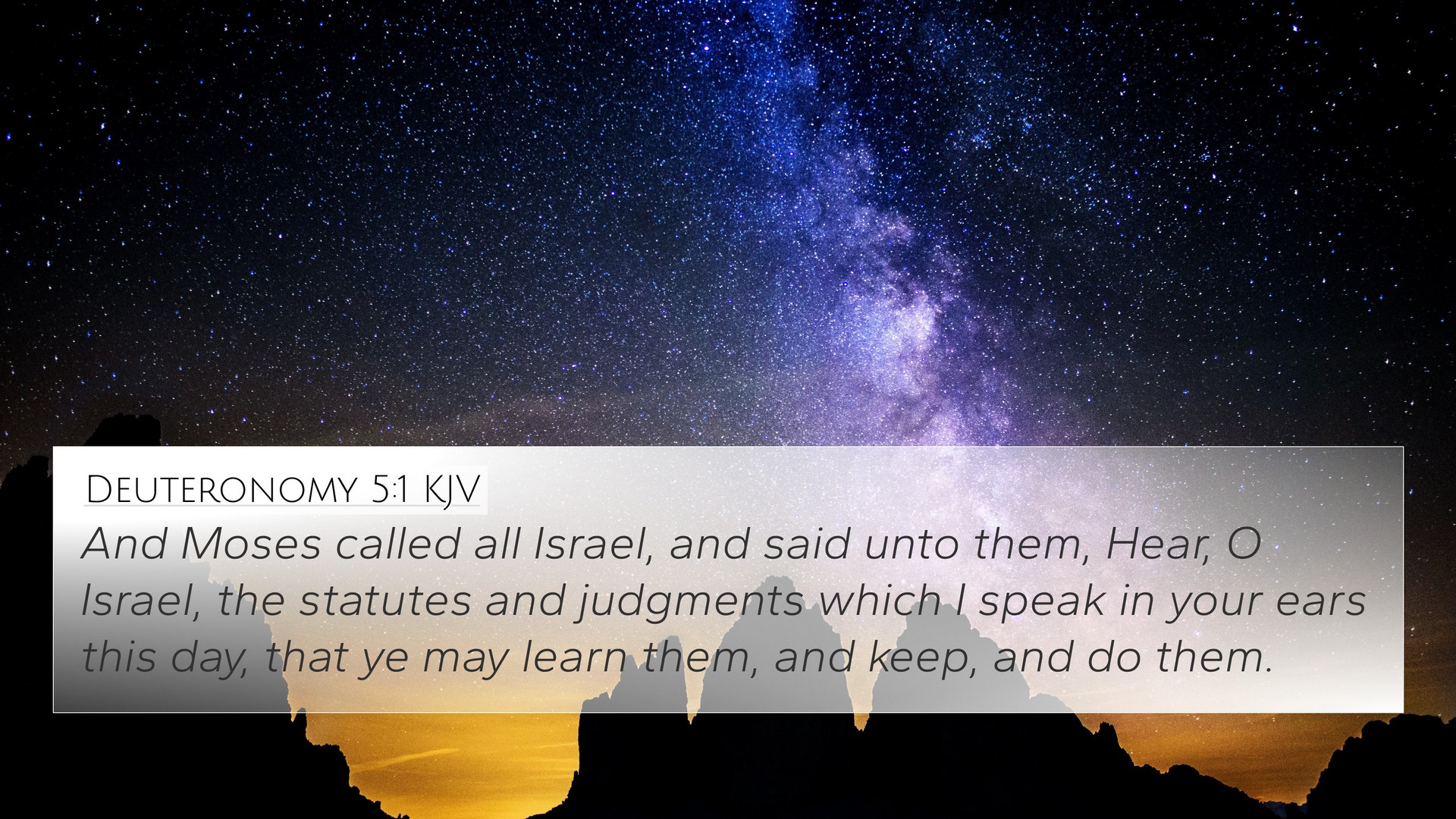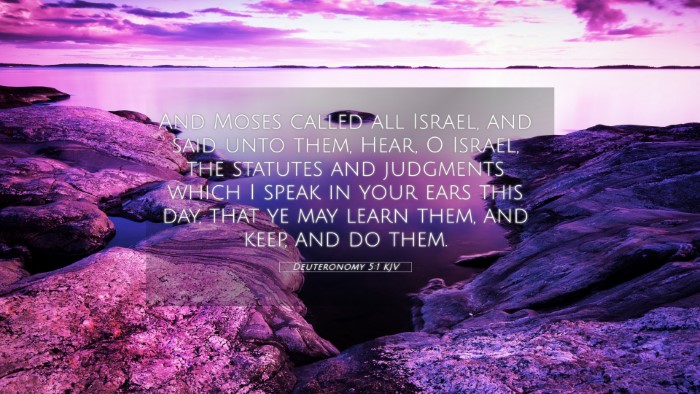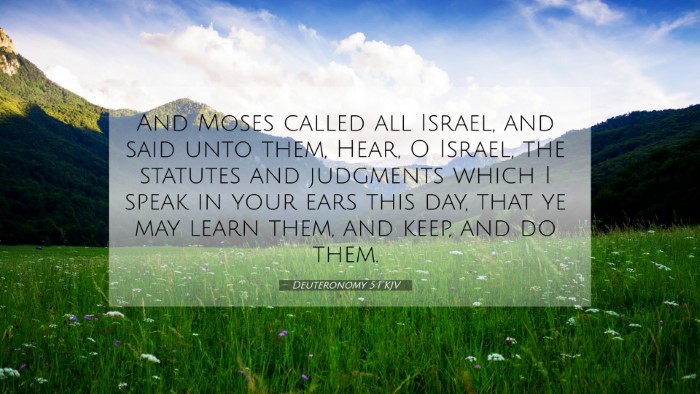Understanding Deuteronomy 5:1
Deuteronomy 5:1 states: "And Moses called all Israel, and said unto them, Hear, O Israel, the statutes and judgments which I speak in your ears this day, that ye may learn them, and keep, and do them." This verse is pivotal as it emphasizes the importance of obedience to God's commandments and sets the stage for the reiteration of the Law.
Overview of the Verse
The verse serves as an invitation from Moses to Israel, imploring them to listen intently to God's laws. It signifies the communal aspect of receiving the divine instructions, underscoring the comprehensive nature of the covenant between God and His people.
Key Themes and Insights
- Divine Authority: Moses acts as a mediator conveying God's commands, highlighting the importance of divine authority in guiding moral behavior.
- Learning and Obedience: The call to "learn" implies that understanding God's laws is not merely intellectual but should lead to practical obedience.
- Covenantal Relationship: This verse sets the foundation of Israel's covenantal relationship with God, where adherence to the law is essential for prosperity and blessing.
Commentary Insights
Matthew Henry
Henry emphasizes the necessity of listening to God's statutes with a receptive heart. According to him, obedience stems from understanding, and thus, Moses' call to hear is a vital component for a successful relationship with God.
Albert Barnes
Barnes points out the collective aspect of Moses' address. He notes that by addressing "all Israel," Moses underscores the communal responsibility of adhering to God's commandments, suggesting that the wellbeing of the nation hinges on collective obedience.
Adam Clarke
Clarke highlights the urgency with which Moses speaks, implying that ignorance of God's law is detrimental. His commentary reflects the significance of both the statutes (the commands) and judgments (the consequences of disobedience) in the formation of moral conduct among the Israelites.
Cross-References to Deuteronomy 5:1
This verse connects to various other passages within the Bible that reinforce the themes of obedience, law, and covenant. Below are some key cross-references:
- Exodus 19:5-6: "Now therefore, if ye will obey my voice indeed, and keep my covenant, then ye shall be a peculiar treasure unto me above all people..."
- Deuteronomy 6:3: "Hear therefore, O Israel, and observe to do it; that it may be well with thee..."
- Psalm 119:105: "Thy word is a lamp unto my feet, and a light unto my path."
- James 1:22: "But be ye doers of the word, and not hearers only, deceiving your own selves."
- Matthew 7:24: "Therefore whosoever heareth these sayings of mine, and doeth them, I will liken him unto a wise man..."
- Romans 2:13: "For not the hearers of the law are just before God, but the doers of the law shall be justified."
- 1 John 2:3: "And hereby we do know that we know him, if we keep his commandments."
Thematic Bible Verse Connections
The call to "hear" in Deuteronomy 5:1 establishes a thematic connection across various scriptures:
- Learning the Law: Similar to Deuteronomy 6:7, where parents are instructed to teach their children the commandments.
- Faith and Action: The relationship between faith and works is echoed in passages like Galatians 5:6.
- Community Responsibility: The concept that a community thrives in obedience is also present in Acts 2:44, where believers shared everything in common.
These connections illustrate a cohesive understanding of the importance of adhering to God's commandments across both the Old and New Testaments. Utilizing tools for Bible cross-referencing enhances our comprehension of these verses and their implications for modern life.
Tools for Bible Cross-Referencing
Utilizing a Bible concordance or Bible cross-reference guide can significantly aid in exploring these connections further. Below are some methods:
- Bible Chain References: Follow links from one verse to another to see thematic connections.
- Comprehensive Bible Cross-Reference Materials: Use study Bibles that incorporate a cross-reference system in their footnotes.
- Cross-Referencing Bible Study Methods: Engage in differentiated study techniques that explore thematic and contextual links.
Conclusion
Deuteronomy 5:1 uniquely conveys God’s desire for His people to engage actively with His teachings, ensuring that they not only hear but also understand and implement them in their daily lives. The insights from public domain commentaries, along with the thematic and scriptural cross-references, reinforce the significance of this message through a broader Biblical context.







